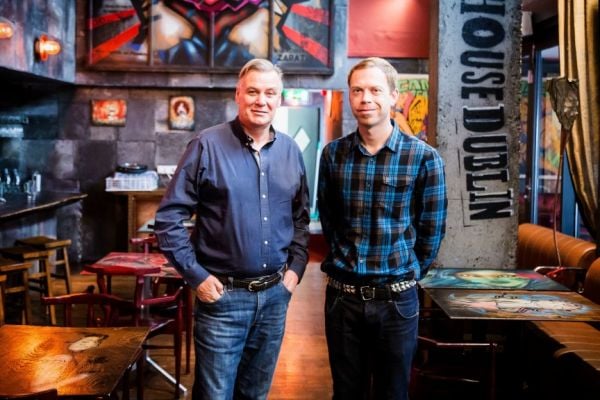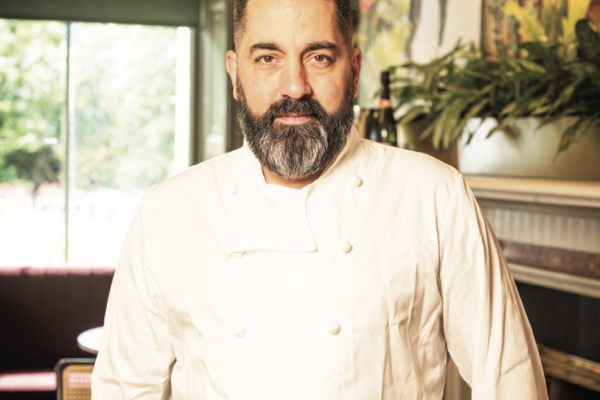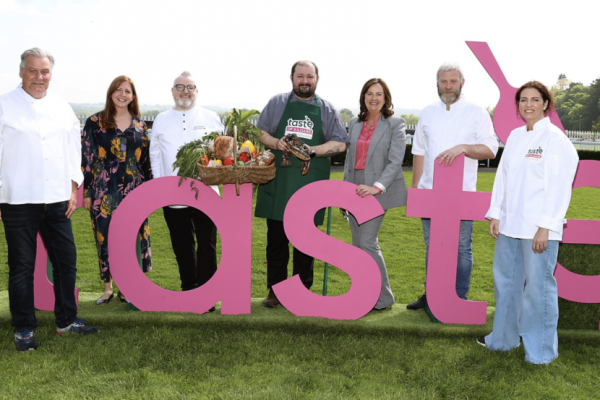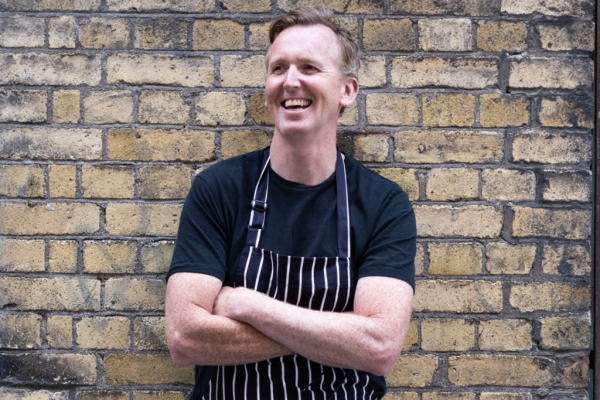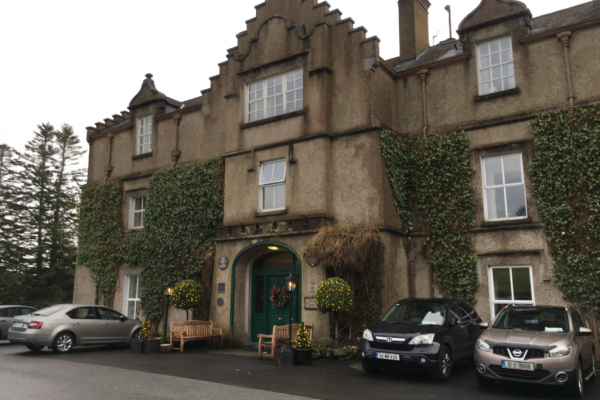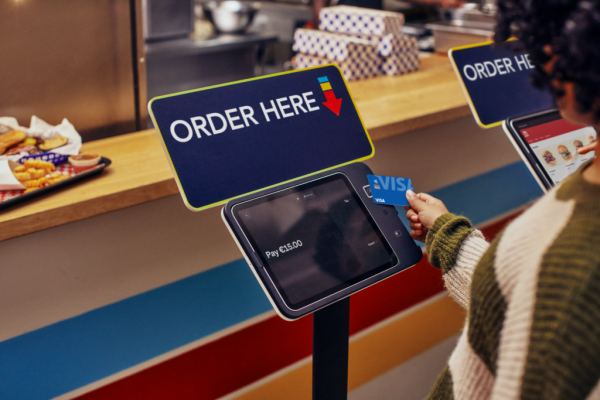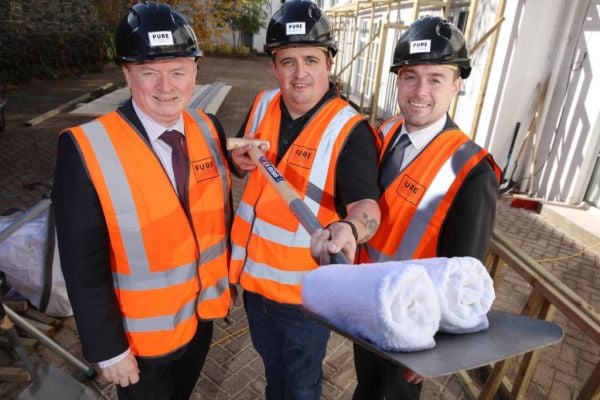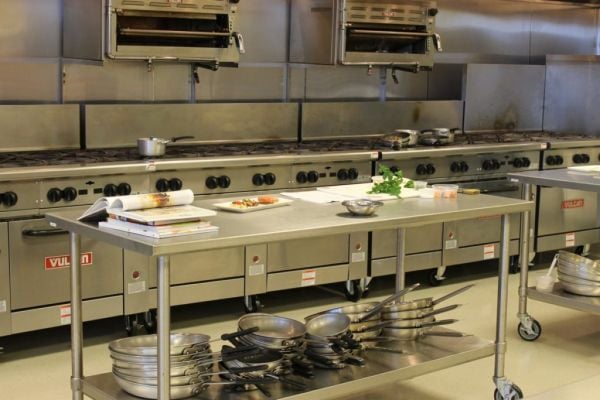Derry Clarke chats to Morne Castelyn, head chef at The Meeting House, about how the restaurant has come on since opening in December, serving Asian tapas in Temple Bar, and expanding the business.
******************************************************************************************************************
Derry Clarke: Are Pygmalion and The Meeting House connected?
Morne Castelyn: Pygmalion is the sister company of The Meeting House, it’s the same owners but this is on its own. I was working in Pygmalion before for five years, it’s very different, that’s where I met the owners. I left Pygmalion completely for one year but I’ve just been asked to go back recently so this is kind of the next step.
DC: What made you become a chef?
MC: When I left high school I left Port Elizabeth in South Africa, that’s where I’m from, and started working as a kitchen porter and really fell in love with the kitchen and my sous chef at the time approached me and asked me if I’d like to make this my career. I was 19 at the time and I just decided “yes” and went straight for it, no questions asked, trying to achieve the goal. So pretty much all my experience I picked up from places where I worked. I fell in love with it from the start and the first few years was just all about learning and learning and learning.
DC: The food in South Africa has a great reputation, it really is different.
MC: It is, I worked in South Africa for about a year and a half as a chef and to be honest it’s really easy to be a chef there because you have such amazing products to work with. In South Africa ‘free range’ is normal, it’s not something you put on the packet to increase the price, it’s just the normal practice.
DC: What are the cuisines you have on the menu here?
MC: We specialise in Southeast Asian cuisine so the likes of Burma, Thailand and even a bit of Japanese and Vietnamese. But what we’ve done is we’ve fused it all into one so you can’t really say it’s Burmese or Thai, rather it’s made with the flavours from Southeast Asia.
DC: Did you work in Asia?
MC: I was trained by a chef who owns a restaurant in India but he’s Burmese himself so that’s where I picked up the experience.
DC: The Meeting House is known as a cocktail house too isn’t it?
MC: The general manager here he’s kind of a cocktail wizard. What we do in the kitchen is equivalent to what they do in the bar, where they use the freshest ingredients and make everything from scratch. We’ve collaborated more on airing drinks with food because for us it’s about the flavours and letting them speak for themselves.
DC: What’s happening next door to here?
MC: It will open down the line, it was a Chinese takeaway before called Charlie’s. Charlie’s and Eden both closed down about the same time which the owners saw as an opportunity so they took over both venues. Next door will be similar, we’re going to serve Asian food there too but it will have more of a pub/bar feel to it.
DC: Temple Bar is different to other places in Ireland in that’s it’s nearly all tourists. Are people expecting Irish cuisine when they come in here?
MC: We are in Temple Bar but we try to be a destination venue. We want to attract local people as well. In Temple Bar there are so many places doing Irish food already it would be kind of a waste in my opinion. The tapas style is a great way to eat, sharing with your family and friends. We just want here to be different and unique. We’re not actually an Asian restaurant, we’re just The Meeting House.
DC: A lot of chefs are having problems getting good chefs at the moment, how are you finding it?
MC: In a nutshell the team I have in here is probably the best I’ve ever had in my time as a head chef. I don’t know it’s luck or if it’s the place itself but the staff that I’ve found every time I’ve looked for someone, are exceptional. I know there’s a shortage of chefs at the moment but in here we’ve been very lucky.
DC: How do you see this place evolving and moving on?
MC: When we think about how we’re going to move forward we generally leave it to happen organically, even with the design of the venue. It looks different now to what it did when we opened in December. The same with the food, we want to stay up with trends and the new things we see. It’s about choosing the right trends and not something that’s just going to blow over.
DC: Are tapas hard to do in the kitchen?
MC: They are but if you plan correctly it can work in your favour because whereas in conventional kitchens you’re getting orders with starters and mains and you can have one docket hanging there for X amount of time just waiting for the mains to be away. We get it in, and we send it out. At any given time we send three tables together. Everybody looks after their section and we send it out as its ready.
DC: Are you busy here?
MC: We are busy but I want us to be busier. I could see us doing double the capacity. I think it’s because of how long we’ve been open, but we are not doing two seatings a night, I want us to get to two or three seatings a night.
DC: What does the future hold for you?
MC: I want to stick it out for now with The Meeting House. I really see us as a trend-setting place and I think down the line we will be well known in Dublin. So I want to associate myself with this restaurant for as long as possible.
